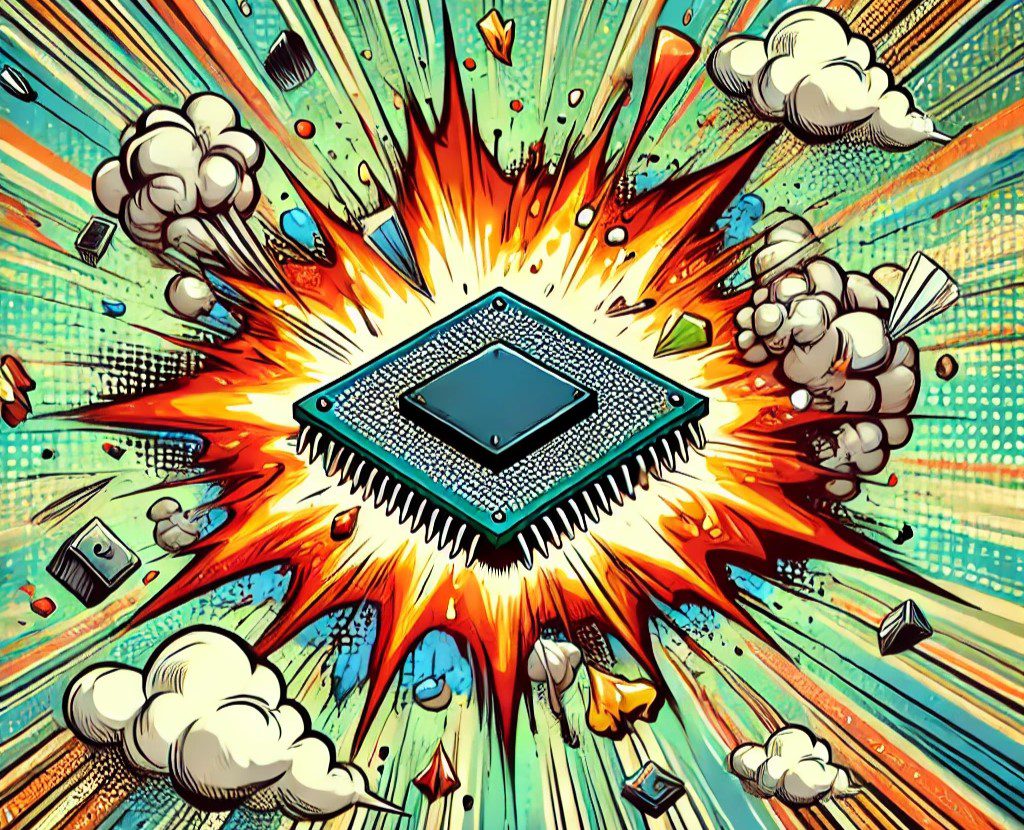A bug that initially seemed to affect only some of Intel’s desktop chips appears to be present in all of the manufacturer’s high-TDP Raptor Lake and Raptor Lake Refresh processors, potentially affecting many desktops and workstations.
What Intel tried to dismiss as a rare niche problem now appears to be a widespread problem: Much of the manufacturer’s current processor range is prone to crashes. The problem, the cause of which is still unclear, is said to affect Intel CPUs based on the Raptor Lake and Raptor Lake Refresh architecture if the components have a TDP of more than 65 watts.
Instability and confusion
The crux of the matter is the instability of different chips. Gamers in particular are struggling with strange behavior and crashing systems. It is becoming increasingly clear that an inherent but unclear error in the chips themselves must be the cause.
The problem came to light some time ago, but it has gained attention in recent weeks. After all, Intel made some contradictory statements. For example, the CPU specialist did not know what the real cause was, but at the same time denied that the same problem had occurred in laptop chips with similar symptoms. Not much later, a solution suddenly appeared in the form of an upcoming patch, but it soon became clear that Intel itself was not so sure that this patch would solve the core of the problem.
Permanent damage
Now an interview with The Verge shows how serious the problem really is. A spokesperson confirms that all Raptor Lake and Raptor Lake Refresh chips for the desktop with a TDP above 65 watts are certainly vulnerable to the error. If a chip is hit, Intel does not deny that the damage is permanent.
An Intel bug in K, KF and KS chips, as well as other chips with a TDP higher than 65 watts from Intel’s thirteenth and fourteenth generations, can cause degradation. The problem is related to instability due to higher voltages. A patch can stop the degradation, but cannot repair the damage. Overclocking is a terrible idea with these chips, although copies with a K label are marketed as overclockable.
No call back
Despite the problem, Intel is not planning a recall. Affected customers can contact customer service and will generally receive a replacement part. It is unclear whether Intel will extend the warranty of the affected processors. The planned patch should continue to ensure that the chips do not degrade further, theoretically without any significant impact on performance.
Intel still does not confirm that its laptop chips are also vulnerable to the same problem, but no longer denies that it is possible. The CPU maker is clearly in a difficult situation, with a widely used CPU architecture having flaws. With Intel now facing competition from AMD and Qualcomm more than ever, it can do without such problems. After all, they have damaged Intel’s image as the ultimate processor expert.
